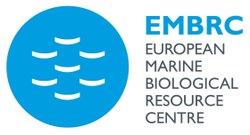Research Infrastructures - pp2EMBRC
H2020 RI
EMBRC (European Marine Biological Resource Centre) is a distributed infrastructure of marine biology and ecology, encompassing aquaculture and biotechnology, exploiting the latest “omics”, analytical and imaging technologies, and providing on site and remote scientific and technical services to the scientific community of the public and private sector. EMBRC successfully completed a preparatory phase in early in 2014 with the production of a business plan and a memorandum of understanding (MoU) signed by 9 countries. An ERIC (European Research Infrastructure Consortium) application is in preparation to create a legal framework for EMBRC.
The pp2EMBRC (2nd Preparatory Phase) will ensure that the beneficiary research communities can exploit the results obtained through the EMBRC-ERIC facility from the start with the highest efficiency. Within pp2EMBRC, Finland has joined the consortium of 9 countries (Belgium, France, Greece, Israel, Italy, Norway, Portugal, Spain, United Kingdom). It was agreed among the partnership that for pp2EMBRC CCMAR (Centre of Marine Sciences, Portugal), one of the EMBRC pioneers, will coordinate pp2EMBRC instead of UPMC (University of Pierre and Marie Curie, France, EMBRC’s host country representative) so as to guarantee efficiency, through the sharing of responsibilities, as a result of EMBRC participating in multiple projects led by UPMC. The project runs from 1 October 2015 until 30 September 2016.

EMBRC was integrated in the ESFRI roadmap in 2008 and was granted a Preparatory Phase contract under FP7 (ppEMBRC) which finished in January 2014. All the European countries participating in ASSEMBLE, with their access hosting institutions, plus Norway and Greece participated in ppEMBRC. A business plan for EMBRC was one of the outcomes of ppEMBRC that was presented to stakeholders in December 2013. As a result of actions taken during ppEMBRC to attract new members, Belgium, Israel, Spain and Finland were initially identified as associate partners and eventually signed the MoU.
The work plan is organized so as to maximize efficiency and achieve its objectives in the short period of 12 months during which the project will be developed. The objectives are related to the need of technical and legal work to bring the partnership at a similar level of operability by the time the EMBRC-ERIC is signed. Thus, in addition to specific work carried mainly by some of the partners, the overall partnership will participate and contribute to the workshops carried in the different work packages:
- WP1 will coordinate, monitor, administer the project and will disseminate its activities and outcomes. This management WP will also oversee the preparation and signature of the MoU with regions and potentially new members developed in WP4;
- WP2 will carry out stepwise procedures with the objective of both implementing common standards, methods and nomenclature across the EMBRC nodes and providing a single point access where application, evaluation and reporting will take place;
- WP3 will deal with practical implications, defining best practice, of European legal regulations on access and benefit sharing of genetic resources and related issues;
- WP4 will aim at partnering with national and regional stakeholders, in particular CPMR to devise mechanisms of ensuring financial sustainability. It will include the involvement of EMBRC in developing the bio-economy in the regions where marine stations are located. This WP will also aim at widening the membership of EMBRC.
Objectives
These are the objectives of pp2EMBRC:
- to harmonize the EMBRC user access mechanism across all the partners, putting all the practical tools in place to enable EMBRC-ERIC to begin operations and commence its access programme;
- to carry out the legal and practical work towards the full implementation of the European and international legislation and commitments regarding access and benefit sharing of the use of marine biological resources, thus providing clarity to future users of EMBRC-ERIC about their legal rights over obtained biological resources;
- to focus the smart specialization of the regions onto the opportunities offered by marine biological resources for blue-biotech development and innovation, thus demonstrating the member states that EMBRC is a player towards economic development of their maritime regions, and enticing new countries to sign the EMBRC-ERIC and prioritize its sustained support.
Role of Ghent University
Ghent University is leading two tasks in WP2:
- Compilation of services provided by national nodes (together with UPMC)
- Development of central web-based service-access system (together with VLIZ)
Contact
Prof. Dr. Ann Vanreusel
Department of Biology
Marine Biology research group
Phone number: 09/264.85.21
E-mail: Ann.Vanreusel@UGent.be